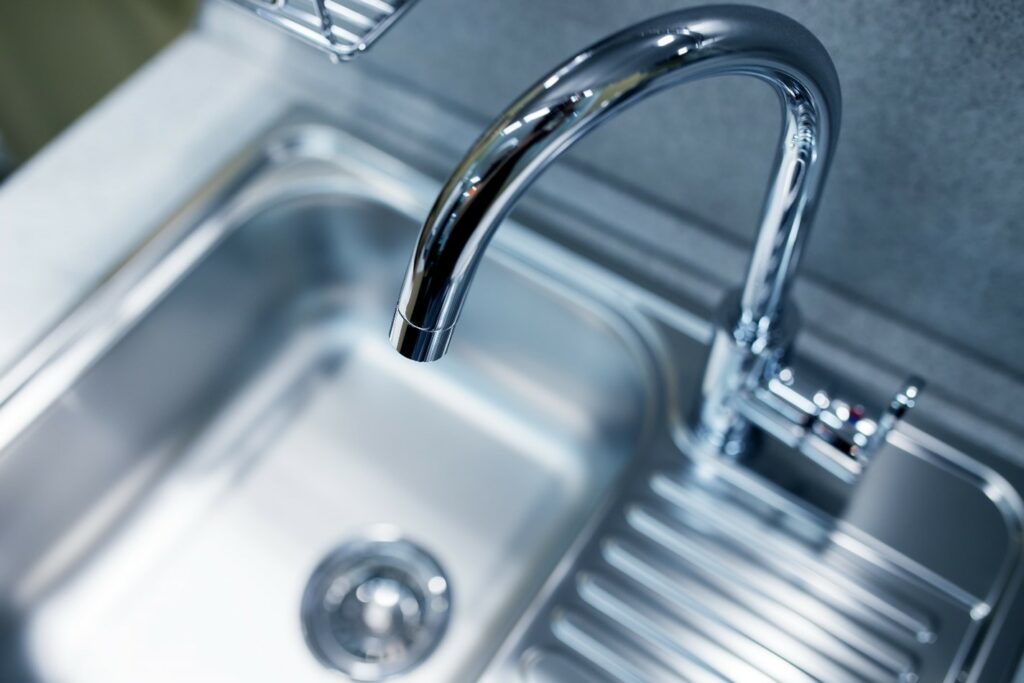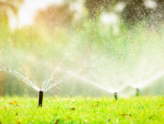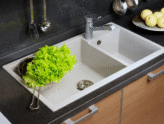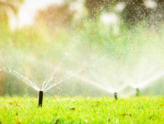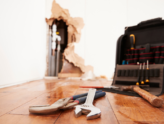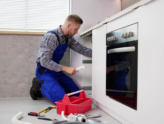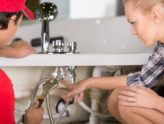What is a Drain Interceptor?
We dispose of contaminants in our water systems daily – oil, fat, and grease. However, your contaminants may not stay flushed away without a drain interceptor. These substances sit on the top of your surface water drains and can easily make their way back up.
What is a drain interceptor, and when do you need one?
Keep reading to learn what a drain interceptor is, when to install one, and the benefits of drain interceptors. Don’t miss out on this crucial plumbing information – you can always contact our friendly and reliable team here at Caldwell Plumbing if you have any questions!
How Often What Are Interceptor Traps?
Interceptor traps are typically found in commercial or industrial environments, however, can be used in a residential home. Their purpose is to separate water from fat, oil, grease, and other contaminants. The interceptor trap holds all these contaminants, ensuring they do not sit atop the water in a drainage system. If the water stays on the top of the water drainage system, they are likely to come back up and spill out.
An interceptor or pitfall trap must be emptied regularly by a service provider. Otherwise, the contaminant container could become too full and overspill. Here are some places where you can expect to see interceptor traps:
● Schools
● Factories and industrial settings
● Supermarket car parks
● Hospitals
● Lorry parks
● Pubs
● Car parks
Typically, any setting where oil spills occur that need drainage will require an interceptor trap. It is an ethical and sustainable way to dispose of contaminants and prevent pollution.
Do I Need a Drain Interceptor?
It can be challenging to determine whether you need a drain interceptor or not, so below, we have provided some examples of when you might need one:
● If the area will be occupied by vehicles and there is a risk of oil and petrol spills (i.e. a petrol station).
● If the site is used for operations involving oils, fats, and greases.
● If the area is over 800 metres squared and requires drainage.
● Areas close to designated nature reserves, such as lakes and marshes.
If the above conditions apply, you will likely require a drain interceptor.
What Are the Advantages of Drain Interceptors?
Let’s discuss what you stand to gain from investing in drain interceptors for your property. Here are the benefits of drain interceptors:
● Protecting waterways – drain interceptors ensure that your waterways are completely free from contaminants that can lead to animal death and pollution.
● Ethical disposal – When using an interceptor trap, you can ethically dispose of contaminants and ensure they are disposed of correctly.
● Protecting the soil – when oil enters the ground, this can significantly impact the area’s ecosystem. You can protect the local wildlife and greenery by preventing these contaminants from entering the soil.
For all of these reasons, it’s essential to take responsibility for the contaminants entering the water system on your property. Speaking to a plumber will help you understand the process of installing drain interceptors and provide you with a quote for the job.
Installation Process for Drain Interceptors
To install a drain interceptor on your property, your contractor must be able to gain access to the sewer system. How accessible the sewer system is on your property will significantly impact the scope of the project.
Having your property evaluated by a plumbing contractor will allow them to present you with a plan for the installation process and provide you with a quote in line with the cost. You should only accept a quote for this job with an inspection of sewer system access, as this could be a red flag, and you will not be able to trust the quote provided.
Call Caldwell Plumbing to Learn More About Ethical Contaminant Disposal
If you’re seeking drain interceptor installation, ask a local plumber to determine the project’s scope. You can do many things at home and on a commercial property to dispose of contaminants sustainably. To learn more about disposing of pollutants ethically, why not contact our friendly and reliable team of plumbers here at Caldwell Plumbing?

